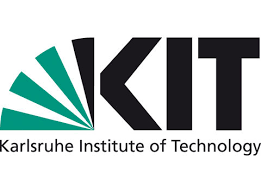Karlsruher Institute for Technology: Anti-reflective film: what high-tech can learn from plants
The high-tech company Phytonics, a spin-off from the Karlsruhe Institute of Technology (KIT), is inspired by plants: The Phytonics film with micro- and nano-structures based on the model of rose petals anti-reflective surfaces of all kinds makes solar modules up to ten percent more efficient and gives many objects a noble, velvety appearance. At the Hanover Fair 2021 from April 12 to 16, the innovation can be seen at the KIT’s “Future Hub” virtual stand.
In many millions of years of evolution, plants have optimally adjusted to the interaction with light. In the case of flowering plants, the success of pollination depends largely on the color impression. This is particularly evident in roses, whose petals are dull and at the same time rich in color. The rose reveals its secret under the scanning electron microscope: the outer covering tissue of its petals, the epidermis, consists of densely packed microstructures, additionally ribbed by nanostructures. With its tiny structures, the rose succeeds in coupling all incident light into the cells – only the colored light emerges again.
The advantages of high-gloss and matt surfaces combined
Phytonics, a spin-off from KIT, was inspired by this principle to create an anti-reflective film for a wide variety of surfaces. “Our film makes it possible to combine the advantages of high-gloss and matt surfaces, namely to achieve intense colors without annoying reflections,” explains Dr. Ruben Hünig, co-founder of Phytonics. At the Hanover Fair 2021, which will take place digitally from April 12 to 16, Phytonics will present its anti-reflective film at the KIT’s “Future Hub” virtual stand.
Researchers at KIT founded Phytonics out of the motivation to promote the sustainable conversion of the energy system with efficient photovoltaics and to develop solar cells with a wide absorption spectrum and high angle of incidence tolerance. They are inspired by plants – in the name of Phytonics, “Phyto-” and “Photonics” are merged. From 2021, the high-tech start-up will receive funding from the EXIST research transfer program of the Federal Ministry for Economic Affairs and Energy and the European Social Fund (ESF).
Solar module yield increased by up to ten percent
The Phytonics anti-reflective film is the result of more than seven years of research and development. With its combined micro- and nano-structuring, it reproduces the epidermis of rose petals over a large area. It suppresses the reflection almost completely for all wavelengths and angles of incidence of light. This makes it far superior to conventional anti-reflective coatings. The Phytonics film increases the yield of solar modules by up to ten percent. But posters, display boards, traffic signs, pieces of furniture, packaging, facades and many other applications also benefit from Phytonics. The film anti-reflective surfaces of all kinds and gives them a noble, velvety appearance.
Since the Phytonics film is mechanically flexible, it is also suitable for curved surfaces. It has a dirt-repellent effect and is highly resistant to environmental influences such as UV light, moisture and temperature fluctuations. It is manufactured using a cost-effective roll-to-roll printing process and can be applied to all kinds of materials using standard lamination processes. The plant-inspired film opens up completely new design freedom for product designers.
As “The Research University in the Helmholtz Association”, KIT creates and imparts knowledge for society and the environment. The aim is to make significant contributions to global challenges in the fields of energy, mobility and information. To this end, around 9,600 employees work together on a broad disciplinary basis in the natural, engineering, economic, humanities and social sciences. The KIT prepares its 23,300 students for responsible tasks in society, economy and science through a research-oriented university course. The innovation activity at KIT bridges the gap between knowledge and application for social benefit, economic prosperity and the preservation of our natural foundations of life.

